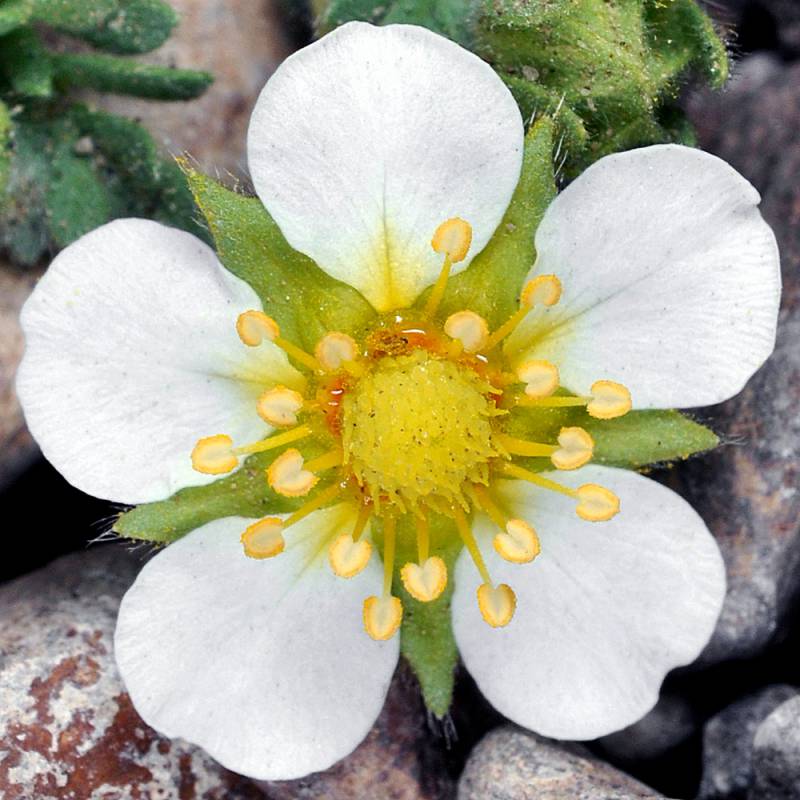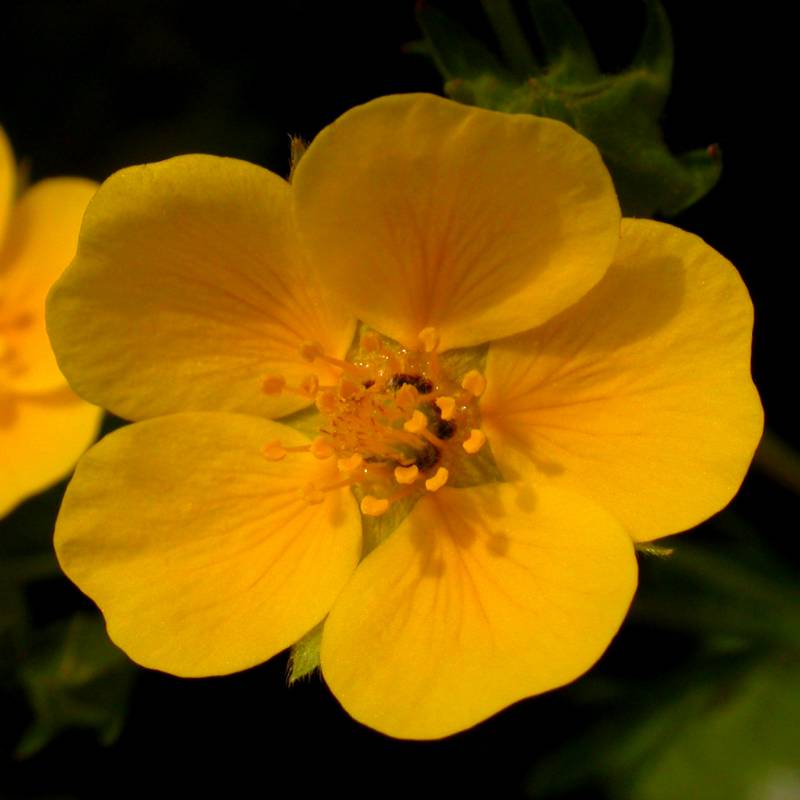Potentilla newberryi
Potentilla drummondii
Newberry's cinquefoil
Drummond's cinquefoil
Basal leaves pinnate, the leaflets 5-9, closely crowded, obovate, 2-5 cm. long, the upper 3 somewhat confluent, all cleft about midway to the mid-vein into linear or lanceolate teeth;
stipules 1-2 cm. long, ovate, entire;
cauline leaves few, much reduced.
Inflorescence open, many-flowered;
calyx saucer-shaped, up to 1.5 cm. wide in fruit, the 5 ovate lobes slightly longer than the alternating lanceolate bracteoles;
petals 5, yellow, obovate, 6-11 mm. long;
stamens 20;
pistils numerous, style slender, sub-terminal, longer than the achene.
Achene 1.5 mm. long.
Potentilla newberryi
Potentilla drummondii
Known historically (1898) from the Columbia River Gorge in Washington, now likely extirpated; central Oregon to California, east to northwestern Nevada.
Occurring on both sides of the Cascades crest in Washington; Alaska to California, east to Alberta, Idaho, and Montana.
- Local floras:
CA,
OR,
WA
- Local Web sites:
CalFlora,
CalPhotos,
Flora NW,
PNW Herbaria
WildflowerSearch
iNaturalist (observations)
USDA Plants Database
- LBJ Wildflower Center
- SEINet
- Plants of the World Online
- Encyclopedia of Life
- Wikipedia
- Google Image Search
- Local floras:
BC,
CA,
OR,
WA
- Local Web sites:
CalFlora,
CalPhotos,
Flora NW,
PNW Herbaria
WildflowerSearch
iNaturalist (observations)
USDA Plants Database
- LBJ Wildflower Center
- SEINet
- Plants of the World Online
- Encyclopedia of Life
- Wikipedia
- Google Image Search



